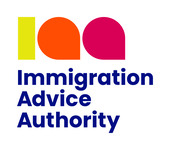Table of Contents
Unlocking UK Opportunities for Leading Minds in Humanities and Social Sciences
The United Kingdom stands as a global beacon for academic excellence and innovation, particularly within the vibrant fields of humanities and social sciences. For international academics, researchers, and leading thinkers in these disciplines, the UK Global Talent Visa offers a prestigious and flexible pathway to contribute to and thrive within this dynamic environment.
Understanding the nuances of The British Academy’s endorsement process is crucial for a successful Global Talent Visa application.
🔗 Check out the Home Office introduction to the Global Talent Visa
Why the UK Global Talent Visa and The British Academy Endorsement?
The Global Talent Visa is an unsponsored route. This means that you are not tied to a specific employer and have the freedom to switch roles. You can also undertake self-employed projects, or establish your own ventures within your field. This flexibility is invaluable for academics and researchers pursuing diverse career trajectories. Key benefits include:
- Flexibility and Freedom: Change employers, work for multiple institutions, or pursue independent research without needing further visa permissions.
- Path to Settlement: A faster route to settlement (Indefinite Leave to Remain) in the UK, typically after three years for the main applicant.
- Family Members: Dependents (partners and children) can accompany you and generally have the right to work in the UK.
- International Collaboration: The visa supports international travel for research without negatively impacting your settlement application, acknowledging the global nature of academic work.
The British Academy assesses applications from individuals in the humanities and social sciences. Their endorsement confirms to the UK Home Office that you are a recognised leader (Exceptional Talent) or a potential future leader (Exceptional Promise) in your field.
Overview of The British Academy Endorsement Routes
The British Academy offers four routes for endorsement, catering to different career stages and circumstances. Three of these are fast-track routes, while one involves a full peer review:
- Route 1: Academic and Research Appointments (Fast-Track): For individuals who have accepted an eligible senior academic or research position at an approved UK Higher Education Institution (HEI) or research institute.
- Route 2: Individual Fellowships (Fast-Track): For individuals who have been awarded an eligible prestigious fellowship.
- Route 3: Endorsed Funders (Fast-Track): For researchers and specialists named on a successful grant application from an approved endorsed funder.
- Route 4: Peer Review (Standard): For individuals who wish to have their application assessed by experts in their field based on their overall profile and achievements.nd shareholder
Route 1: Academic and Research Appointments
This fast-track route is designed for individuals appointed to significant leadership roles within UK academic or research institutions.
Eligibility Criteria:
- You must have accepted an eligible academic or research position at an approved UK HEI or research institute.
- The role must involve responsibility for academic, research, or innovation leadership and development, OR directing/leading an individual or team research/innovation project or programme.
- Examples of roles include Vice-Chancellor, Pro-Vice-Chancellor, Dean, Head of School, Research Institute Director, or similar senior positions. It is generally not for entry-level postdoctoral positions unless significant independent leadership can be demonstrated.
Application Process and Required Evidence:
Applicants must provide:
- A job description detailing the duties and responsibilities.
- A statement of guarantee from the Director of Human Resources (or equivalent) at the appointing institution. This statement, on headed paper, signed and dated, must confirm:
- The job was advertised and an open competition held (or an explanation if not).
- The applicant has accepted the job offer.
- The job title and department.
- The role meets the leadership/directing criteria mentioned above.
- At least two references were received for the applicant.
- The interview panel included at least three academic/research/innovation representatives.
- At least one expert in the applicant’s field was on the panel, or a relevant independent expert was consulted.
A comprehensive list of approved UK HEIs and research institutes is available on the GOV.UK and British Academy websites. It is crucial to ensure your employing institution is on this list and that your role clearly meets the specified leadership criteria.
Route 2: Individual Fellowships
This fast-track route is for individuals who have been awarded a prestigious individual fellowship recognised by The British Academy.
Eligibility Criteria:
- You must have been awarded an individual fellowship from the approved list. This list is maintained by The British Academy, Royal Academy of Engineering, and Royal Society and is available on their websites and GOV.UK.
- The fellowship must be current or have been held within the last five years.
Application Process and Required Evidence:
Applicants must provide:
- A copy of the award letter for the fellowship.
- The letter must clearly show the fellowship is on the approved list and the dates it is/was held.
This is often the most straightforward route if you hold one of the specified fellowships. The focus is on the prestige and recognition associated with the fellowship itself.
Route 3: Endorsed Funders
This fast-track route is for researchers and specialists whose roles are directly supported by grants from funders endorsed by UK Research and Innovation (UKRI).
Eligibility Criteria:
- Your name or specific job title must be included in a successful grant application from a UKRI-approved endorsed funder.
- The grant must be for a minimum of £30,000 and cover at least two years.
- You must be hosted or employed by an eligible UKRI-approved institution.
Application Process and Required Evidence:
Applicants must provide:
- A copy of the grant award letter(s) confirming the grant’s value (£30,000+), duration (2+ years), and that it is from an endorsed funder.
- A statement of guarantee from the Director of Human Resources (or equivalent) at the employing/hosting eligible research organisation. This letter must confirm:
- The organisation is on the UKRI list of eligible institutions.
- The applicant is essential to the execution of the grant.
- The grant and the applicant’s role meet the eligibility criteria as per immigration rules.
Lists of endorsed funders and eligible host organisations are available on the GOV.UK website.
Route 4: Peer Review
This is the standard (not fast-track) route. It is for individuals who can demonstrate exceptional talent or exceptional promise through a comprehensive assessment by peers in their field.
Eligibility Categories:
- Exceptional Talent: For established leaders in their field.
- Exceptional Promise: For those at an early career stage who show potential to become leaders.
Mandatory Eligibility Criteria for Peer Review Assessment:
- Be an active researcher (e.g., in a university, research institute, or industry).
- Hold a PhD or have equivalent research experience (including industrial or clinical research).
- If applying under Exceptional Promise, be at an early stage of your career.
Meeting these does not guarantee endorsement but allows the application to proceed to full peer review.
Peer Review Assessment Criteria:
Peer reviewers assess:
- Track Record/Career History: Contributions to the field, international standing, significance of publications, prizes, funding, patents, licenses, spinouts, and impact of past innovation.
- Supporting Statements: Strength of the personal recommendation letter and, for Exceptional Talent, the second mandatory letter of objective assessment.
- Expected Benefits to the UK: Contribution to UK research and innovation excellence and wider society, including potential economic benefits.
Assessors look for compelling evidence of originality, creativity, independence, and intellectual leadership. A clear, credible plan for UK activities and contributions is also vital.
Required Documentation for Peer Review:
- A completed Stage 1 (endorsement) application form
- A Curriculum Vitae (CV): Maximum three A4 sides, outlining career and publication history.
- Letter of Personal Recommendation: From an eminent UK-resident person familiar with your work and qualified to assess your claim for Exceptional Talent/Promise. The letter must detail:
- How the author knows you.
- Your achievements in the field.
- How you demonstrate Exceptional Talent/Promise.
- The expected contribution your presence would make to the UK.
- For Exceptional Talent ONLY – Second Letter of Objective Assessment: From another eminent person, a senior member of a reputable UK organisation in your field, qualified to independently and authoritatively assess your claim. This letter should provide an objective evaluation of your talent and international standing.
It is crucial that referees are genuinely eminent and can speak with authority about your work. The British Academy reserves the right to verify the credibility of referees.
General Application Advice for All Routes
- Choose the Correct Endorsing Body: The British Academy is for humanities and social sciences. Ensure your field aligns. A list of eligible disciplines is on GOV.UK.
- Understand the Two-Stage Process:
- Stage 1: Endorsement Application: Apply to the Home Office, which then refers your application to The British Academy (or other relevant body). You will be notified of the endorsement decision by the Home Office.
- Stage 2: Visa Application: If endorsed (or if you hold a prestigious prize exempting you from Stage 1), you can then apply for the Global Talent Visa itself to the Home Office within three months of receiving endorsement.
- Accuracy and Completeness: Ensure all information is accurate and all required documents are provided as per the specific route’s guidelines. Missing or incorrect information can lead to delays or refusal.
Learn more about the application process and fees: 🔗 Complete Guide to the Uk Global Talent Visa
What The British Academy Looks For
Across all routes, The British Academy seeks individuals who can significantly contribute to the UK’s research and innovation landscape in the humanities and social sciences. Key indicators include:
- Significant Achievements: A strong track record relative to your career stage.
- Leadership: Demonstrated leadership (for Exceptional Talent) or potential for leadership (for Exceptional Promise).
- Contribution to the UK: A clear vision of how your work will benefit the UK.
- •International Recognition: Evidence of your standing in the international academic community.
In conclusion
The UK Global Talent Visa offers an unparalleled opportunity for leading and emerging talents in the humanities and social sciences. By understanding the specific endorsement routes and meticulously preparing your application, you can unlock this pathway.
Whether you are considering an academic appointment, hold a prestigious fellowship, are part of an endorsed funded project, or are seeking peer review, careful preparation is key. The British Academy seeks individuals who will enrich the UK’s intellectual and cultural life, and your application is your opportunity to demonstrate that you are such an individual.
Author

Tochi Okoronkwo
Tochi is an IAA certified immigration adviser with expert knowledge of UK Immigration Law and a genuine desire to make your immigration journey as smooth and stress-free as possible.
Stay Updated
Related Articles
Quickly browse the latest offers, read in-depth articles, and case studies to get the full story.


